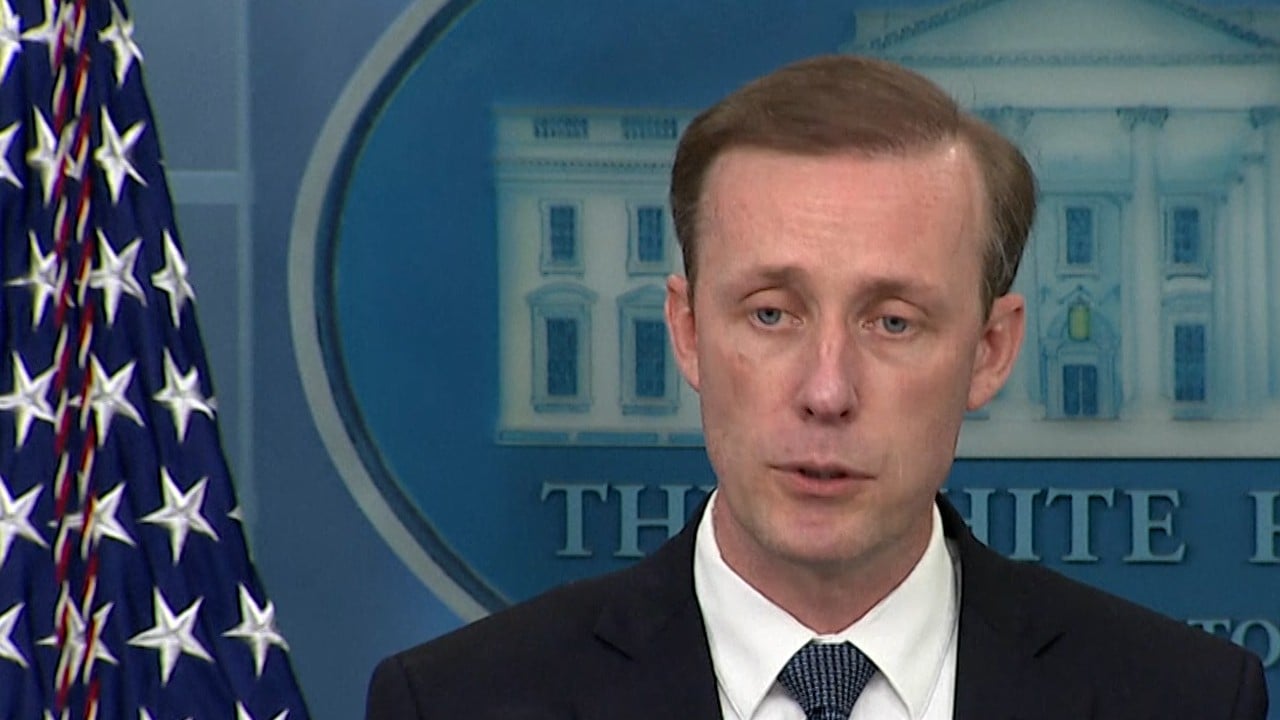
00:54
Biden to launch ambitious economic initiative for Indo-Pacific on Asia tour, White House says

Defensive, inadequate or even mean are words that could describe Western reactions to the rise of China. The Indo-Pacific Economic Framework (IPEF) which the Biden administration is currently promoting around Asia fits all of these descriptions well.
The IPEF is nebulous to the point of being meaningless, as the Washington-based Centre for Strategic and International Studies (CSIS) suggested in a recent commentary. Others might describe it less politely as an attempt by the United States and its allies to rally behind a tattered flag.
It seems that every time China has come up with a geoeconomic initiative in recent years – such as the Regional Comprehensive Economic Partnership (RCEP), the Belt and Road Initiative or the Asian Infrastructure Investment Bank (AIIB) – Western reactions have been negative.
The latest example of this behaviour is the IPEF, which US President Joe Biden is pushing during his visits to South Korea and Japan while also taking in meetings with leaders from Australia and India. But he will have a hard time selling such a half-baked and opportunistic initiative.
It has all the hallmarks of being a rushed job, cobbled together so that Biden can go into US midterm elections with an Indo-Pacific feather in his cap to add to the laurels he has garnered from bringing Nato countries onside in dealing with Russia, and perhaps indirectly against China.
As Robert Ward, Japan chair and director of geoeconomics and strategy at the International Institute for Strategic Studies, said last week at the Foreign Correspondents Club of Japan in Tokyo, “In terms of economic statecraft in the Indo-Pacific, the Biden administration is lacking and China’s making a lot of the running.”
Critically, the IPEF is not a regional trade agreement of the kind represented by the 15-nation RCEP or by the 11-member Comprehensive and Progressive Trans-Pacific Partnership. The US initially promoted its predecessor, the Trans-Pacific Partnership, then bungled it by pulling out under former president Donald Trump.
Fortunately from the point of view of Asia’s long-term geoeconomic interests, the IPEF plan – which CSIS describes as the “Biden administration’s answer to questions about the United States’ economic commitment to the vital Indo-Pacific region” – is struggling to gather traction in the region.
Biden proposed the IPEF in October last year as the centrepiece of his administration’s economic strategy towards the Indo-Pacific region. It consists of four pillars- fair and resilient trade; supply chain resilience; infrastructure, clean energy and decarbonisation; and tax and anti-corruption measures.
The administration reportedly intends to launch the initiative with interested countries this spring. Negotiations on the respective pillars are expected to begin some months later and agreements to be made within 18 months, possibly ahead of the Apec Leaders Meeting in 2023.
The decision to announce the initiative first and only later decide what it will contain has allowed some acceptance of it in principle but also earned criticism of the IPEF as a place-filler to divert attention from the RCEP.
The situation has become absurd. The US and close allies such as Britain, Japan and Australia have essentially told China “anything you can do, we can do better” and are trying to prove it by putting together rivals to the Belt and Road Initiative, the RCEP or other China-led initiatives.
They ignore or downplay the fact that China welcomed Western participation at the founding of the AIIB, an invitation Washington and Tokyo turned down. For its part, Britain jumped in feet first to grab some business for UK industry and for the City of London.
When Western arguments against the Belt and Road Initiative began to look thin, attention shifted to allegations of China engaging in “debt trap diplomacy” in its infrastructure projects. Such arguments can only be pushed so far without their credibility becoming overstretched.
Trump’s special form of China bashing via imposing tariffs came to be seen as lacking economic logic and a strategy that damaged US consumers as much as China. The Biden administration has since fallen back on arguments about human rights and the rule of law to rally allies around its battle standard.
Desirable though any or maybe all of these things might be, there is little evidence they can be achieved via defensive or aggressive posturing. Things have become much more polarised beyond the kind of “free market versus the state” arguments that initially characterised Western reactions to China’s rise, with the Russian invasion of Ukraine, the imposition of damaging economic sanctions against Russia and the threat of a new cold war creating a dangerous divide.
Everything now seems to come down to a “with us or against us” approach, and the IPEF plays into this kind of oversimplification. We have a new banner of the righteous being hoisted, even if there is no battle plan for those who rally beneath it.
According to the CSIS report, “regional partners unanimously welcomed the IPEF as a sign of renewed US economic engagement in the Indo-Pacific region after several years on the sidelines”. But unless the US and its allies are prepared to accept China as at least an equal, “engagement” can only be through conflict.
Anthony Rowley is a veteran journalist specialising in Asian economic and financial affairs